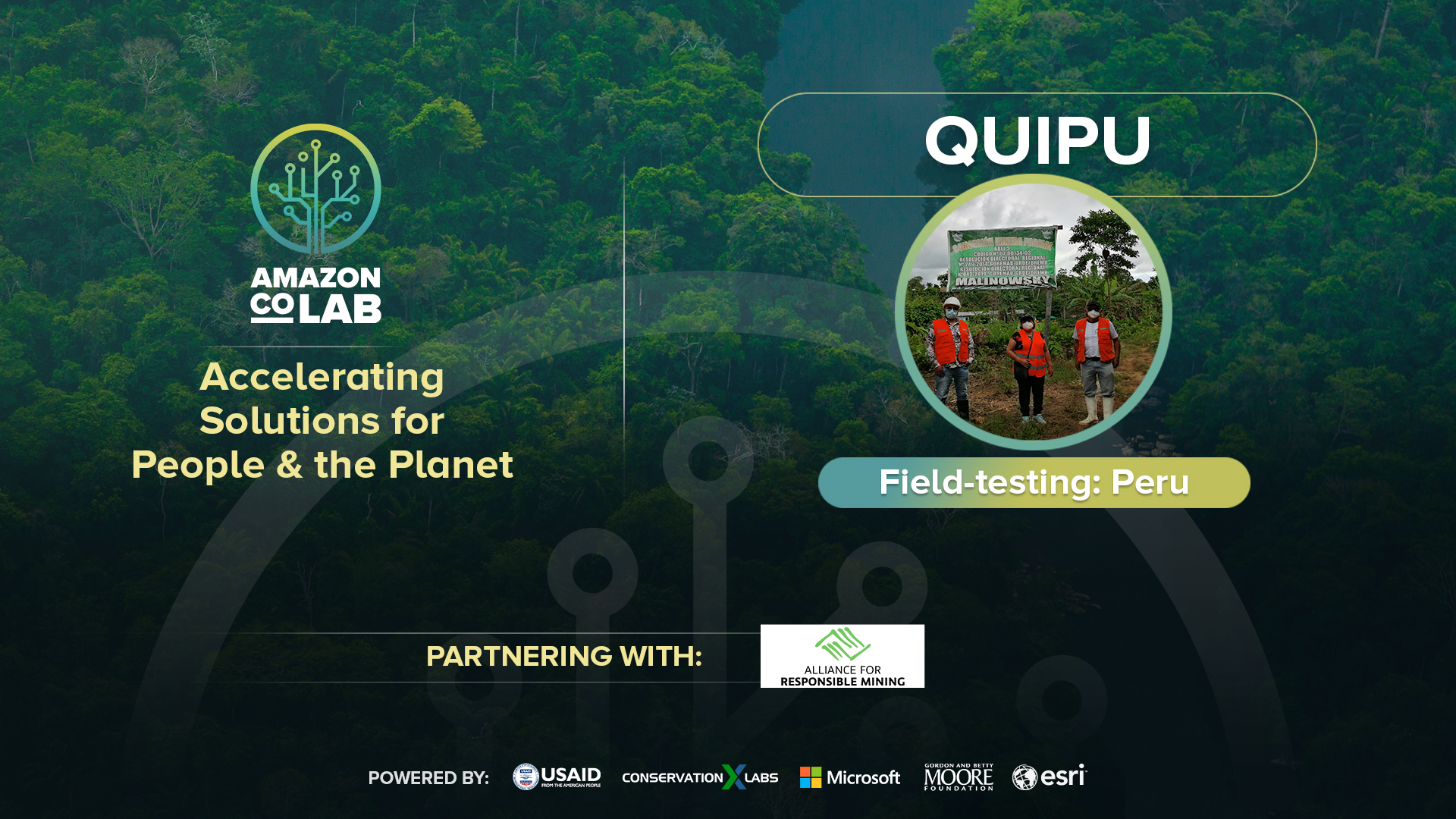The Amazon CoLab will accelerate solutions that aim to transform artisanal and small-scale gold mining practices to be more environmentally responsible and socially equitable.
TORONTO — Ulula will join the Amazon CoLab to test Quipu (Matokeo) in Peru with Alliance for Responsible Mining as a field-testing partner in 2022.
Conservation X Labs (CXL), in partnership with the United States Agency for International Development (USAID), the Gordon and Betty Moore Foundation, Microsoft, and Esri, launched the Amazon CoLab, a 6-month acceleration program that will support innovator teams developing, testing, and advancing solutions to protect people and ecosystems in the Amazon.
The inaugural Amazon CoLab cohort consists of six international teams that received recognition in the first round of the Artisanal Mining Grand Challenge, executed from 2019-2020. These teams are now working with regional partners in Peru and Guyana to test their solutions.
“The Amazon CoLab marks the beginning of a new model for conserving the Amazon,” said Dr. Alex Dehgan, CEO & Co-Founder of Conservation X Labs. “We’re excited to bring together a talented inaugural cohort, knowledgeable local partners working on the ground, and experts in technology and innovation to collaborate together in an effort to preserve the future of the Amazon.”
To learn more about the Amazon CoLab participants and the program, visit www.artisanalminingchallenge.com
About the Amazon CoLab
Conservation X Labs, a technology and innovation company that builds ventures and empowers innovators to revolutionize conservation and prevent the sixth mass extinction, will lead the implementation of the Amazon CoLab with the support of Engineering for Change (E4C), a global organization with broad experience delivering international product development programs through its global network of engineers. E4C, as a part of the American Society of Mechanical Engineers (ASME), has developed and leveraged a Product and Engineering Support Services program, which is a proven methodology for supporting social entrepreneurs as they move technology innovations from concept to testing to scale-up.
Throughout the program, participating teams will have access to a unique space for field-testing and accelerating their solutions in the Amazon basin, while connecting to implementation and testing partners in the field; experts and mentors in the business, technology, engineering, and conservation fields; and organizations and funders interested in the growth of the inaugural cohort’s solutions. The CoLab aims to advance each innovation’s application, commercial, and funding readiness levels in pursuit of adoption, financial sustainability and/or commercial success, and environmental and social impact.
This initiative is a part of The Artisanal Mining Grand Challenge, a global call for solutions to make artisanal and small-scale mining more environmentally responsible and socially equitable. The Challenge ran its first round in 2019-2020 and focused on solutions that could be applied anywhere in the world. The second round is made possible through a Global Development Alliance with the support of the Gordon and Betty Moore Foundation, Microsoft, Esri, and the United States Agency for International Development (USAID) and centers its efforts on solutions for the Amazon.
Finalists selected from the Artisanal Mining Grand Challenge: the Amazon will be invited to participate in the second cohort of the Amazon CoLab starting in April 2022.
For more information, contact:
Ulula
Sergio Salgado, sergio@ulula.com
Conservation X Labs
Maria Fernanda Larrea, mariaf@conservationxlabs.org

